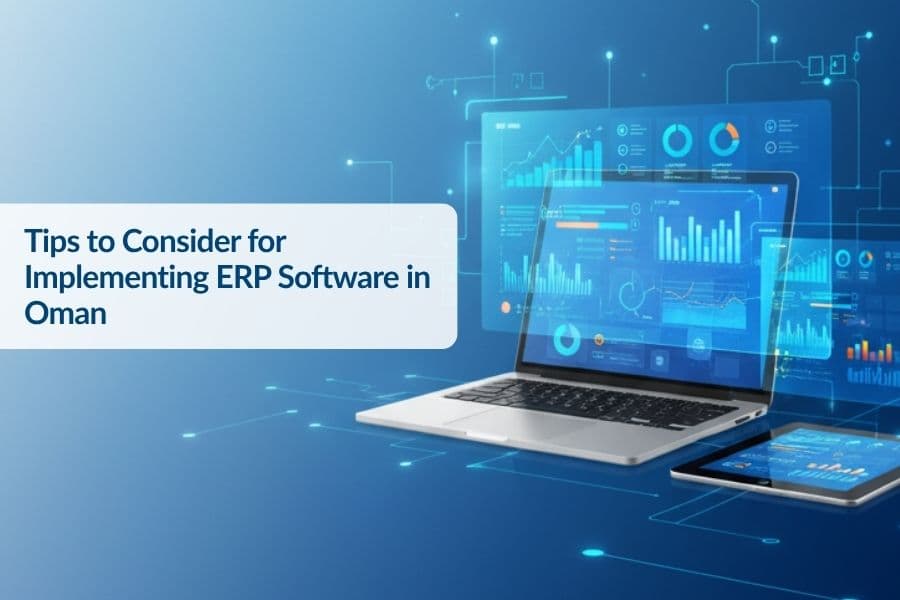
Tips to Consider for Implementing ERP Software in Oman
ajinananth
Implementing ERP software is one of the most strategic decisions for any business in Oman, especially as the nation moves forward with Vision 2040 and its emphasis on digital transformation. A well-planned ERP implementation can streamline operations, improve efficiency, and enhance decision-making across departments.
Here are some key tips to ensure successful ERP implementation in Oman.
1. Define Your Business Goals Clearly
Before choosing an ERP system, identify your company’s specific needs and pain points.
Ask questions like:
- What processes need automation?
- Which departments will use the ERP most?
- How will it support long-term business goals?
Having clear objectives helps select the right ERP solution, such as ERPNext or other cloud-based platforms tailored for Omani businesses.
2. Choose the Right ERP Vendor
Selecting a reliable ERP software provider in Oman is crucial. Look for vendors who:
- Offer local support and training
- Understand Omani business regulations
- Provide flexible and scalable ERP solutions
Partnering with a trusted vendor ensures smooth implementation and long-term support.
3. Involve Key Stakeholders Early
ERP implementation affects multiple departments—finance, HR, sales, and operations.
Involve department heads and end-users from the beginning to ensure that:
- Everyone understands the purpose of ERP
- There’s better user adoption
- Workflow customization meets real needs
This collaborative approach minimizes resistance and improves system acceptance.
4. Focus on Data Migration and Accuracy
Migrating existing data is one of the most sensitive steps.
Ensure that your data is:
- Cleaned and validated before migration
- Properly mapped to the new system
- Backed up securely
Accurate data ensures smoother operations and better insights once the ERP goes live.
5. Invest in Employee Training
Even the best ERP software will fail without proper user training.
Conduct hands-on workshops and provide step-by-step guides so employees can adapt to the new system confidently. Continuous training also helps in reducing errors and improving efficiency.
6. Start with a Pilot Implementation
Instead of rolling out ERP software across all departments immediately, start with a pilot phase.
This allows your team to:
- Test system performance
- Identify potential issues early
- Adjust configurations before a full-scale launch
A phased approach ensures smoother adoption and reduced downtime.
7. Ensure Ongoing Maintenance and Support
ERP implementation doesn’t end after deployment. Regular maintenance, updates, and performance checks are essential for long-term success.
Partner with an ERP support provider in Oman who can handle upgrades, technical issues, and system enhancements.
8. Align with Oman Vision 2040
Oman’s Vision 2040 promotes digital innovation, automation, and sustainability in business. Implementing ERP software that aligns with these goals helps your organization stay competitive, compliant, and future-ready.
Conclusion
Successful ERP implementation in Oman requires planning, collaboration, and ongoing commitment. Whether you’re an SME or a growing enterprise, choosing the right ERP solution and following these tips will help streamline your operations and drive digital success.